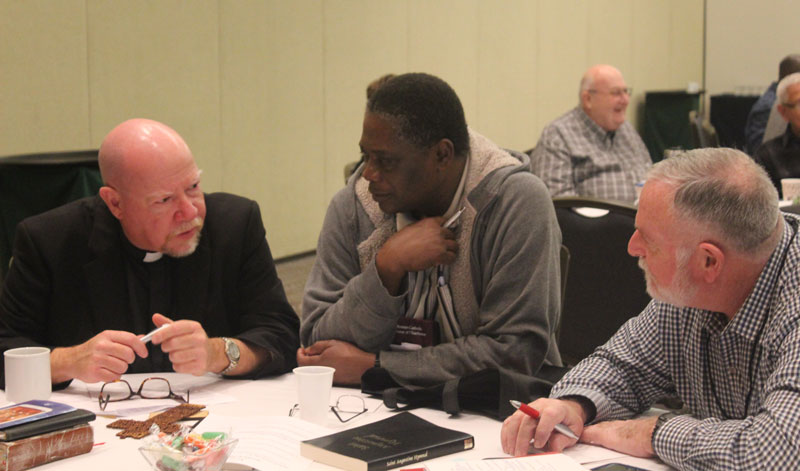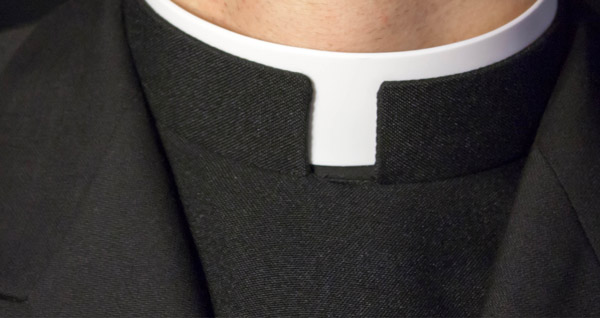
MYRTLE BEACH—Leadership might not be the first skill that comes to mind when we think about what makes a good priest. Knowledge of Scripture, Church teaching and strong homilies might seem more important.
Without the ability to lead, however, none of those skills help a priest run a parish and bring people to a close relationship with God. That was the message of the annual Convocation for Priests held Jan. 8-11.
More than 100 priests spent three days learning about pastoral leadership during sessions led by Michael Nees, a senior consultant with Essential Conversations Group out of Chicago. Nees has been guiding priests and lay ministers in dioceses around the country through Leadership Roundtable’s Catholic Leadership 360, and currently works with the Archdiocese of Chicago on its “Renew My Church” initiative.
Leadership is more vital than ever in the life of today’s clergy because we are living in a rapidly changing world, where the Church is no longer the stable, central focus of many people’s lives like it once was, Nees said.
“The priest’s role today is not simply to shepherd the parish through daily life,” he said. “Priesthood is a calling, not just a job. God is calling you to serious leadership in a society where there is so much change that we have to stop doing things the way we always did. We need priests with the ability to see the new directions we are going in and that have the courage to ask the faithful to follow.”
Nees reminded the priests the hallmark of a good leader is not a dominating, charismatic personality or a constant take-charge attitude. The priesthood is made up of both introverts and extroverts, and both types of personalities can be good leaders.
The best pastoral shepherds, Nees said, are priests who are keenly aware of the mission and direction they need to follow, and who are then able to surround themselves with people who can help them make the mission a reality.
He urged the priests to learn how to work with different personalities, to listen and resolve conflicts, and, when needed, to make changes in staff or on parish committees when people hinder a mission or purpose. He also said priests need to strike a balance between the daily maintenance that keeps a parish running and the mission that will carry people into the future.
By learning these skills, priests can become the kind of servant leader that Jesus was, a man who leads his flock and energizes them to be disciples in daily life.
The men also learned that one of the hallmarks of a good leader is the ability to say no.
“Priests need to know that they are permitted to say no, and they need to learn when to say it and not feel guilty about it,” Nees said. “Be clear about what your ministry and your parish ministry is all about, make expectations clear and set boundaries so you know what you can do and what your limits are.”
The men talked about the many different priorities priests must juggle on a daily basis, especially when they are the only one working in a large parish or don’t have an assistant or deacon present. For example, a pastor must often weigh an already-scheduled obligation against an emergency call for his services.
Added to that, Nees said it is also crucial to schedule time for relaxation and personal spiritual renewal, an important priority that is often ignored.
“This week I learned that we need to constantly reassess and reevaluate what we are doing as priests so that we are better able to serve God’s people,” said Father Patrick Eyinla, parochial vicar at Christ Our King Church in Mount Pleasant. “Without constantly doing this, we become stagnant in our work for the Church.”
Father Andrew Trapp, pastor of St. Peter Church in Beaufort, said the week offered many good ideas.
“We’ve been challenged to not just focus on how to keep things running, but also how to develop a bigger mission for the parish,” he said.


